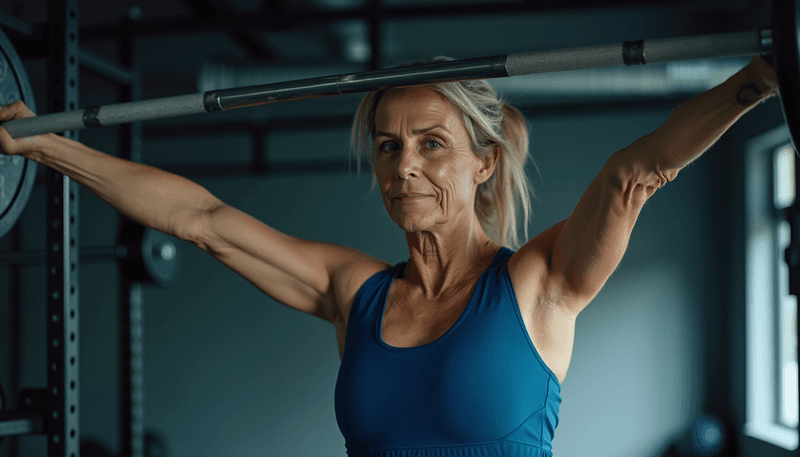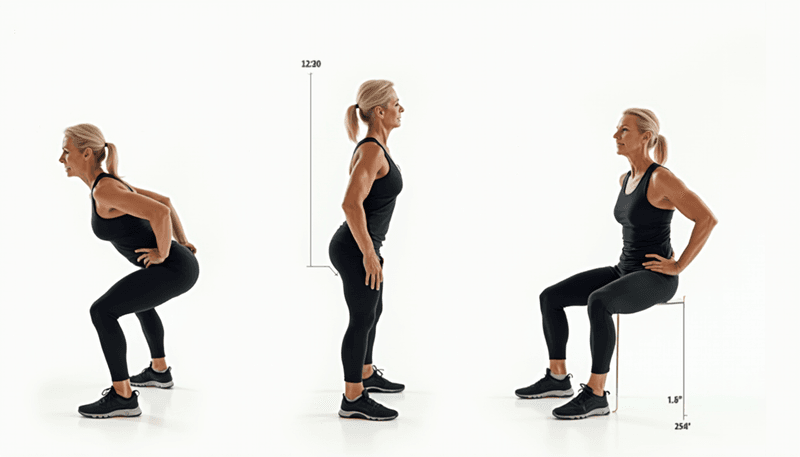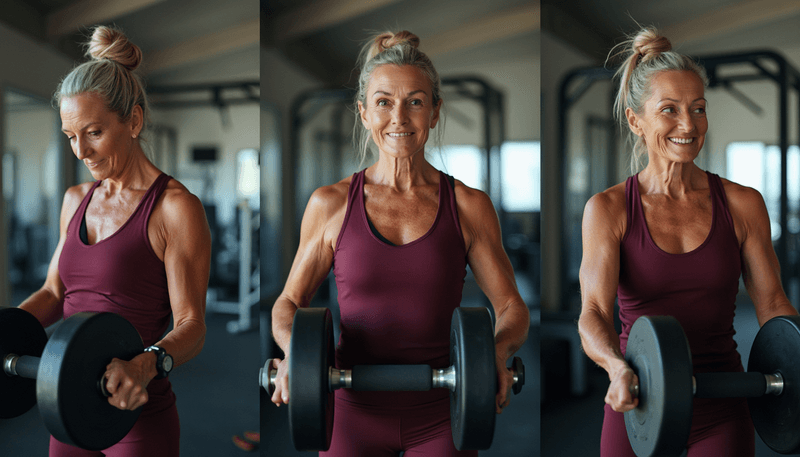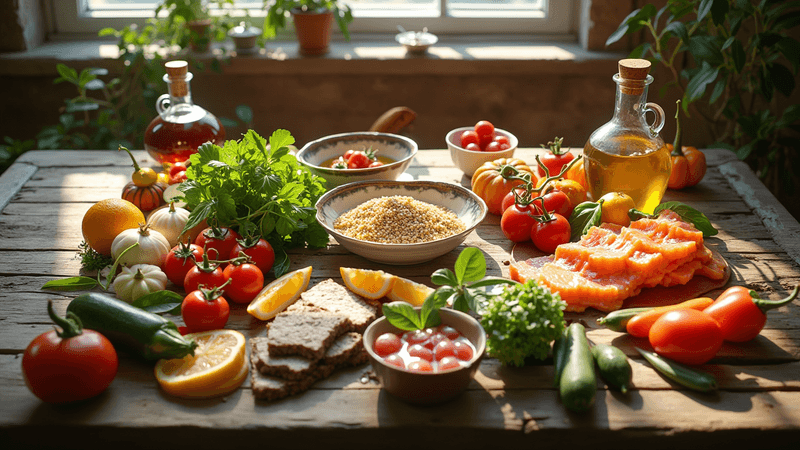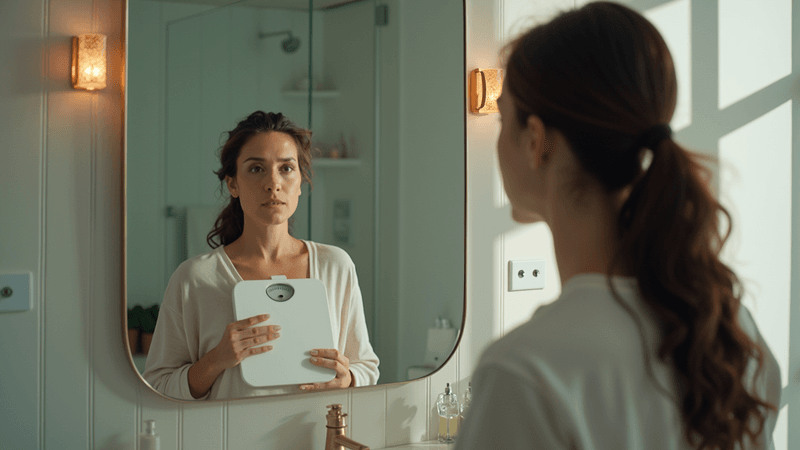Free Weights Build Strength After Menopause
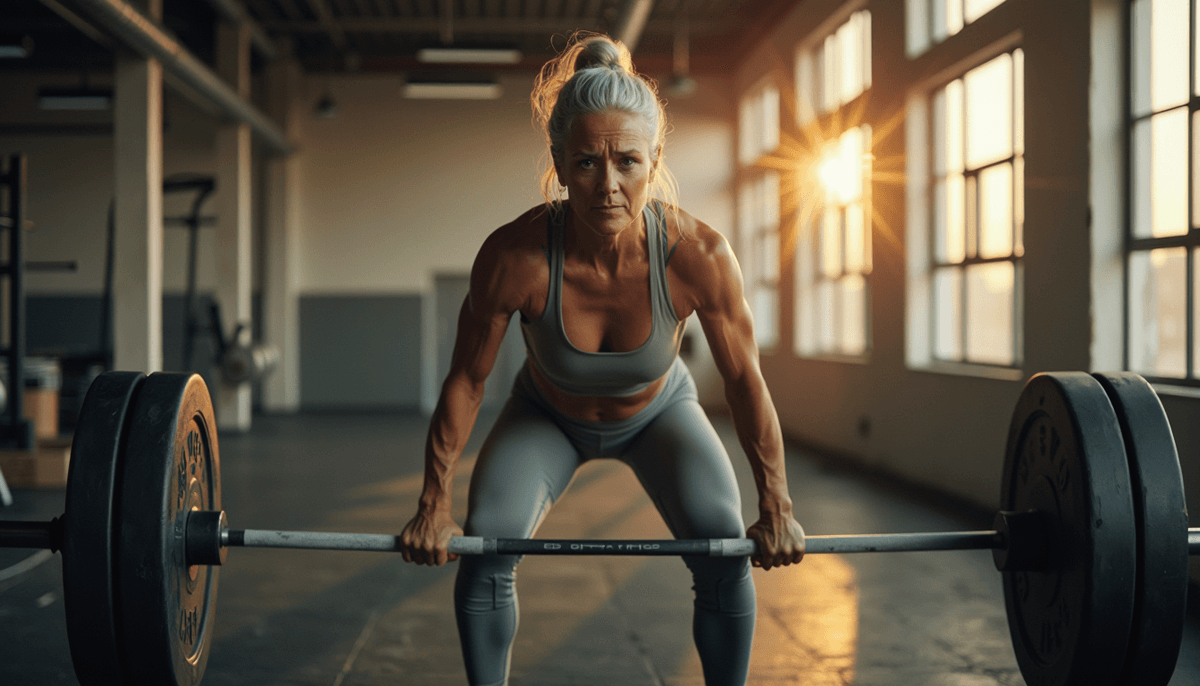
Standing in front of the weight rack at the gym, Sarah, 52, hesitated. "Should I stick to machines? Are free weights too risky at my age?" These questions echo through many women's minds as they navigate fitness after 40. A groundbreaking new study examining free-weight training in pre and post-menopausal women brings welcome clarity to this common concern.
Free Weights: Safe and Effective at Any Age
The research delivers an encouraging message: free-weight training is both safe and beneficial for middle-aged women. Not a single injury occurred during the 20-week study period, challenging the notion that free weights are too dangerous for older adults.
Think of free weights like learning to ride a bicycle versus using training wheels. While machines (training wheels) feel safer initially, free weights help develop real-world strength and stability that transfers directly to daily activities. When you lift your grandchild or carry groceries, you're not guided by machines – you're using your body's natural movement patterns.
"But what if I've never lifted weights before? Isn't it too late to start?"
The study participants, ranging from 40-60 years old, proved it's never too late. Whether pre or post-menopausal, all women showed significant improvements in strength after just 10 weeks of training twice weekly.
The Muscle-Building Mystery: Hormones Matter
Here's where things get interesting. While all women got stronger, their body composition changes told different stories. Pre-menopausal women gained muscle mass and lost fat, while post-menopausal women maintained their existing muscle mass but needed higher training volumes for growth.
Think of your muscles like a garden. Pre-menopause, you have optimal growing conditions (hormones like estrogen). Post-menopause, the soil conditions change, requiring more attention (higher training volume) to achieve the same growth.
Key findings for post-menopausal women:
- Need more than 6-8 sets per muscle group weekly
- Benefit from training intensities above 50% of maximum strength
- May require more than two sessions per week for optimal results
"How can you tell if you're training hard enough?"
The study suggests using a simple guide: if you can complete more than 20 repetitions with a weight, it's time to increase the load. This ensures you're providing enough stimulus for strength gains.
Beyond Barbells: The Wider Benefits
The implications stretch far beyond the gym. Strong muscles support healthy aging in multiple ways:
- Better balance and reduced fall risk
- Improved bone density
- Enhanced metabolic health
- Greater independence in daily activities
Consider strength training as your investment in future independence. Just as you save money for retirement, building strength now pays dividends in mobility and function later.
"What matters more - how heavy you lift or how often you train?"
The research suggests both play crucial roles. Post-menopausal women particularly benefit from moderate intensity (around 75% of maximum) and higher training frequency. This combination provides the optimal stimulus for maintaining muscle mass and building strength.
In my practice as a health writer and certified fitness instructor, I've seen countless women transform their lives through strength training. One client, Maria, started at 55 having never touched a barbell. Six months later, she was confidently performing squats with free weights and reported feeling stronger than she had in decades.
The science is clear: free-weight training offers a safe, effective path to strength and health for women at any age. The key lies in matching your training approach to your hormonal status and being consistent with your efforts.
Ready to start your strength journey? Begin with two sessions per week, focusing on basic movements like squats and presses. If you're post-menopausal, consider working with a qualified trainer to design a program with adequate volume and intensity for your goals.
Remember: every rep builds not just strength, but confidence, independence, and vitality for the years ahead. Your future self will thank you for starting today.
What small step will you take this week toward building your strength?

Olivia Rose Chen-Martinez
Olivia Rose Chen-Martinez is a seasoned health and wellness writer with a focus on women’s health issues, including PCOS, perimenopause, and holistic wellness. With a background in Journalism and Public Health from UC Berkeley, Olivia draws on over 15 years of writing experience to deliver empathetic, research-backed insights. Her work blends personal anecdotes and actionable advice, resonating with readers seeking accessible and trustworthy information. Based in Austin, Texas, Olivia is also a certified yoga instructor and a dedicated advocate for balanced, integrative approaches to women’s health.
